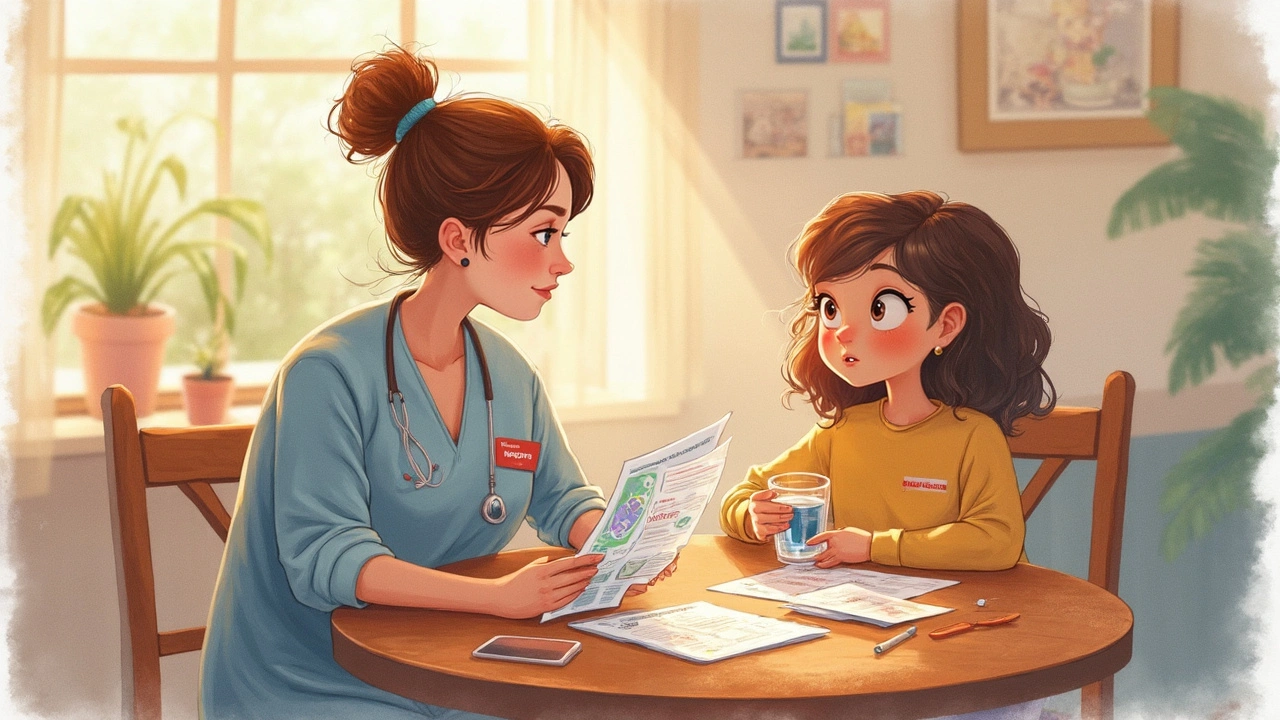Pediatric urology focuses on urinary and genital problems in children from newborns to teens. If your child has repeated urinary tract infections, trouble peeing, bedwetting beyond age five, an undescended testicle, or a birth difference like hypospadias, a pediatric urologist can help. These specialists treat kids differently than adult doctors—exams, tests, and surgery are tailored for growth and comfort.
Seeing a specialist early often avoids bigger problems later. For example, vesicoureteral reflux (urine flowing back to kidneys) raises infection risk and can harm kidney growth if untreated. Fixing an obstructed urinary tract or repairing a severe hypospadias early can improve function and reduce the need for repeat procedures. Parents who act early also get clear plans for monitoring, medicine, or simple home steps.
When should you call a pediatric urologist? If your child has fever with a urinary infection, blood in the urine, painful or weak stream, or sudden daytime accidents, call. Also seek help for an undescended testicle after six months, or if newborn male genital anatomy looks unusual. If bedwetting causes shame or affects school and sleepovers, a specialist can check medical causes before trying behavior changes and alarms.
Doctors use targeted tests that are not scary. A clean urine sample often tells the story. Ultrasound shows kidney and bladder shape. A voiding cystourethrogram (VCUG) checks for reflux and is done only when needed. For older kids, uroflow studies measure stream and bladder emptying. Most tests are quick and use no radiation or only small amounts.
Treatment mixes medicine, behavior, and sometimes surgery. For infections, short antibiotic courses and hygiene tips work well. For overactive bladder or daytime wetting, bladder training, timed voiding, and pelvic-floor exercises help many children. Bedwetting alarms and low-dose medication can be options for older kids. Surgical fixes include repairing severe hypospadias, correcting reflux when high-risk, or orchiopexy to bring down an undescended testicle.
You can help at home. Keep a bladder diary of volumes and accidents to bring to appointments. Encourage regular bathroom breaks, limit caffeinated drinks, and pick easy clothes for quick bathroom access. Praise progress rather than punish mistakes. If a procedure is planned, ask about pain control, recovery time, and follow-up steps so you feel ready.
Find a pediatric urologist through your pediatrician, hospital referral, or local medical society. Ask about experience with kids, office comfort measures, and whether the team includes child-life specialists. Good communication and clear next steps make care less stressful for both you and your child.
During the visit, expect gentle exams and questions about toilet habits, fluid intake, and constipation. Bring a list of medicines, prior urine test results, and your bladder diary. Ask for clear diagrams if surgery is suggested, and detail on anesthesia and pain control. Most kids recover fast and return to normal in days to weeks. Schedule follow-up to check growth and kidney or bladder function. Bring a trusted adult for support and extra questions.

Solifenacin, a drug mainly used for adult overactive bladder, is sometimes given to children and teens. This article breaks down how safe and effective solifenacin is for younger patients, what side effects families should watch for, and which situations make it a good option. Real-world advice, medical facts, and guidance for caregivers make this a must-read for anyone dealing with pediatric bladder problems.
Learn fast, safe ways to purchase cheap generic Bactrim online, compare prices, spot legit pharmacies, and avoid common pitfalls.
The FDA uses therapeutic equivalence codes to determine which generic drugs can safely replace brand-name medications. Learn how A and B codes work, why some generics aren't interchangeable, and how pharmacists use the Orange Book to ensure safe substitutions.
Affirmative consent laws don't apply to medical decisions. Learn how real patient permission works through informed consent and substituted judgment when you can't speak for yourself.
Learn how to safely buy Glipizide online, spot legit pharmacies, avoid scams, check for prescriptions, and get tips for Canadians ordering diabetes meds.
An in-depth look into the severe side effects of the antibiotic Zithromax (Z-Pak) and the legal actions against Pfizer Inc. Over-prescription risks, patient reports of severe health issues, and legal options for affected individuals are discussed.